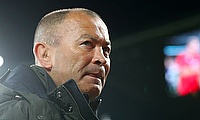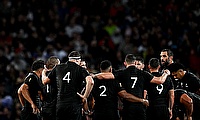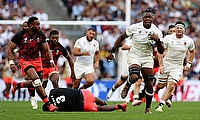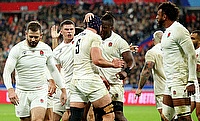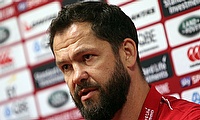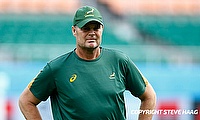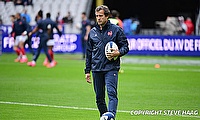Why the World Cup needs Fiji
There is a large and persuasive school of thought that sport, like religion, is something to be seen as an entity entirely separate to politics: it would be corruptible and susceptible to bias if we allowed politicos to have an influence on an area of global culture whose autonomy is a key tenet. Superficially, it is a persuasive argument, and it is a shame for the Fijian rugby team, whose participation in the forthcoming 2011 Rugby World Cup has been cast into doubt by political turmoil beyond its control, that it is one too glib to really be true.
Players at the elite level of any team sport often talk in patriotic terms about the glory and honour of representing their country, rather than a team that coincidentally bears its name, on the global stage. Furthermore, it is almost impossible to think of a major national sporting body that does not receive government funding. Then-Prime Minister Tony Blair was a prominent figure in the British Olympic Association's successful bid for the 2012 Game, and England's 2018 football World Cup bid was led by the unlikely triumvirate of Prince William and the right wing duo of Davids Beckham and Cameron. Whilst I have written previously about sport needing to be autonomous in its application of the laws of the game, it is right that the IRB have acquiesced to the New Zealand government's decision to deny any person (not player) with ties to Fiji's non-democratic military government admission to the country, regardless of whether New Zealand's parliament is right or not.
Nonetheless, as in any great theatre taking the ethically sound road comes at a cost. Whilst the IRB is hopeful of resolving the diplomatic dispute, a Fijian side shorn of its brightest stars would diminish the spectacle of the World Cup: the same can be said of all teams, of course, but there is a reason the Pacific Islanders are regarded as most people's second best-liked side.
Already they are a depleted side. Racing Metro No.8 Jone Qovu has opted to put family first and reject an opportunity to travel to New Zealand, as has Leinster's brilliant attacking full-back Isa Nacewa, one of Europe's outstanding players. Also missing will be Rupeni Caucaunibuca, the Toulouse winger who has struggled recently with fitness and disciplinary issues but lit up the 2003 tournament and has show sporadic bursts of brilliance since. It is for now unclear which of the players selected would be ineligible for entry into the country as things stand, however the situation is grave enough that Vidhya Lakhan, president of the Fiji Association of Sports and National Olympic Committee, has called for Fiji to boycott the tournament if the stance is not changed.
Fiji have provided some of the most memorable moments of the past two tournaments from a neutral perspective. Perpetually underfunded and unfairly denied enough competitive rugby “ you have to go back to 2006 for the last time they played a home test against top opposition, in this case Italy “ they we within four minutes of shocking Scotland to reach the quarter finals in 2003. In 2007 they went one better, stunning Wales with an incredible display of pace and power to knock the much-hyped glamour boys out at the first hurdle and provoking paroxysm of laughter east of the Severn. It was the best match of the tournament by a distance, and for 60 minutes in their quarter-final with South Africa they threatened to pull off a bigger shock as they matched the eventual champions in every facet.
An under-strength, or worse still absent, Fijian side would be a travesty not just for reasons of warm memories and nostalgia, but also for the future development of the game. With Argentina having fallen into abysmal form and unlikely to challenge Scotland and England, and Italy in a tough pool with Ireland and Australia, it is Fiji who represent the best chance for an emerging team to break the hegemony of the world's eight leading teams in the knock-out stages. They face a Wales side with a woeful record against South Sea Island "minnows just days after the latter are likely to have taken a physical battering at the hands of Samoa. An upset would, in an ideal world, be the proverbial bonfire under the arse of the IRB needed to prompt them into developing and pouring much-needed funds into the game in that part of the world. Hopefully they would learn from their mistakes made with Argentina following the South Americans' breakthrough in 2007: their forthcoming admission into the Tri-Nations tournament is so belated that they have no hope of anything other than a resounding thrashing in any of their inaugural matches, so bad is their form.
As things stand however, the above paragraph is academic. Unless IRB chief Mike Miller can successfully resolve the diplomatic issue with the New Zealand government, then we are likely to see a shell of a Fijian side this autumn. As a consequence, it looks ever more likely that the tournament's latter stages will have a familiar, stale feel to them.

